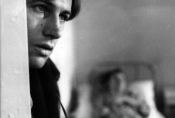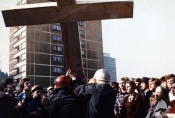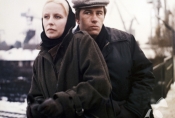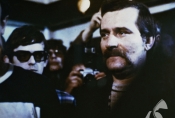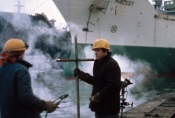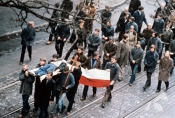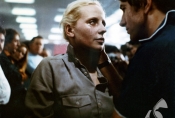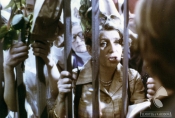MAN OF IRON [1981]
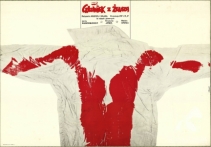
year:
- 1981
release date:
- 27 VII 1981
runtime:
- 147 min
directed by:
- Andrzej Wajda
written by:
- Aleksander Ścibor-Rylski
director of photography:
- Edward Kłosiński
cast:
- Jerzy Radziwiłowicz [Maciek Tomczyk, Mateusz Birkut], Krystyna Janda [Agnieszka], Marian Opania [Winkel], Irena Byrska [mother of Wiesława Hulewicz], Wiesława Kosmalska [Wiesława Hulewicz], Bogusław Linda [Dzidek], Franciszek Trzeciak [Badecki], Janusz Gajos [Deputy President of the Radio Committee], Andrzej Seweryn [Captain Wirski], Marek Kondrat [Grzenda], Jerzy Trela [Antoniak], Krzysztof Janczar [Kryska], Krystyna Zachwatowicz [Hanka Tomczyk], Bogusław Sobczuk [a TV journalist], Wojciech Alaborski [HR manager]
edited by:
- Halina Prugar
music by:
- Andrzej Korzyński
production design:
- Allan Starski
produced by:
- Zespół Filmowy „X”
executive producer:
- Barbara Pec-Ślesicka
awards:
-
• Cannes Film Festival (France) 1981: Golden Palm, the Ecumenical Jury Prize
• Polish Feature Film Festival Gdańsk 1981: Solidarity Award
• Lubusz Film Summer Łagów 1981: Silver Grape
• Nominated for an Oscar in 1982
About the film
A continuation of the fate of the Birkut family is presented in the film Man of Marble.
"Man of Iron as a feature film is not a reconstruction but a creative take on events which we try to show from different points of view through various characters – characters who also have their own personal issues. It refers not only to the August, but also earlier events, which affected the fate of the characters of the film −not only ending the life of Mateusz Birkut, but shaping his son – Maciek Tomczyk" (statement by Andrzej Wajda).
August 1980. Strikes on the coast begin. Deputy President of the Radio Committee suddenly summons Winkiel, a journalist, and hands him material for a Gdańsk shipyard worker, Maciek Tomczyk, an activist of the illegal trade unions. He orders him to immediately go to Gdańsk and collect material for a report that would discredit the Strike Committee. In Gdańsk, Winkiel meets Badecki, an activist of the Party, who strongly emphasises the importance and political significance of Winkiel’s mission.
At the end of their confidential talk, Badecki hands the journalist a bottle of gin. For the alcoholic Winkiel, it is a priceless gift, because the Strike Committee have introduced a total prohibition. The next day, Winkiel tries to get into the shipyard to get the necessary information − to no avail. After returning to the hotel, he finds Wirski in his room, a Security Service officer, who gives him a briefcase with documents on Tomczyk. The police allow him to meet Agnieszka, Maciek’s wife, detained in custody for supporting the strikes. Agnieszka tells him the story of her life. In 1976, her license to make films was revoked and she never completed her film about Maciek’s father, Mateusz Birkut. Her acquaintance with Maciek bloomed into love. For several years of their marriage, the Tomczyks were persecuted for anti-government activities. Maciek went to prison. Agnieszka, with their child, went to her father, and it was there that the news of the strikes found her. On the way to Gdańsk, she was stopped by the police. After talking to Agnieszka, Winkiel experiences shock and publicly sides with the workers' demands. Talks between the Government Commission and the Inter- Factory Strike Committee are nearing conclusion to the benefit of the workers. Dzidek, a former friend of Winkiel’s, reveals the objectives of his reportage. Walking alone, the journalist is stopped by a car driven by Badecki. He tells him that the agreement between the government and the workers is just a meaningless piece of paper.
Waldemar Piątek, Leksykon polskich filmów fabularnych, Warszawa 1996

